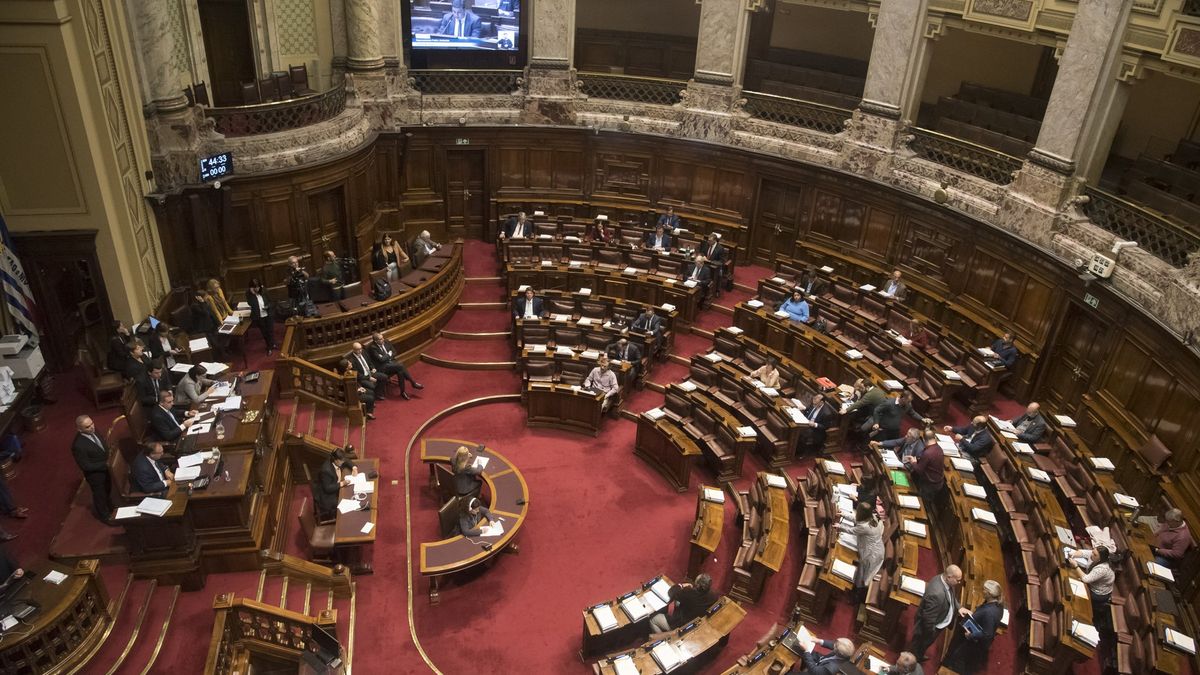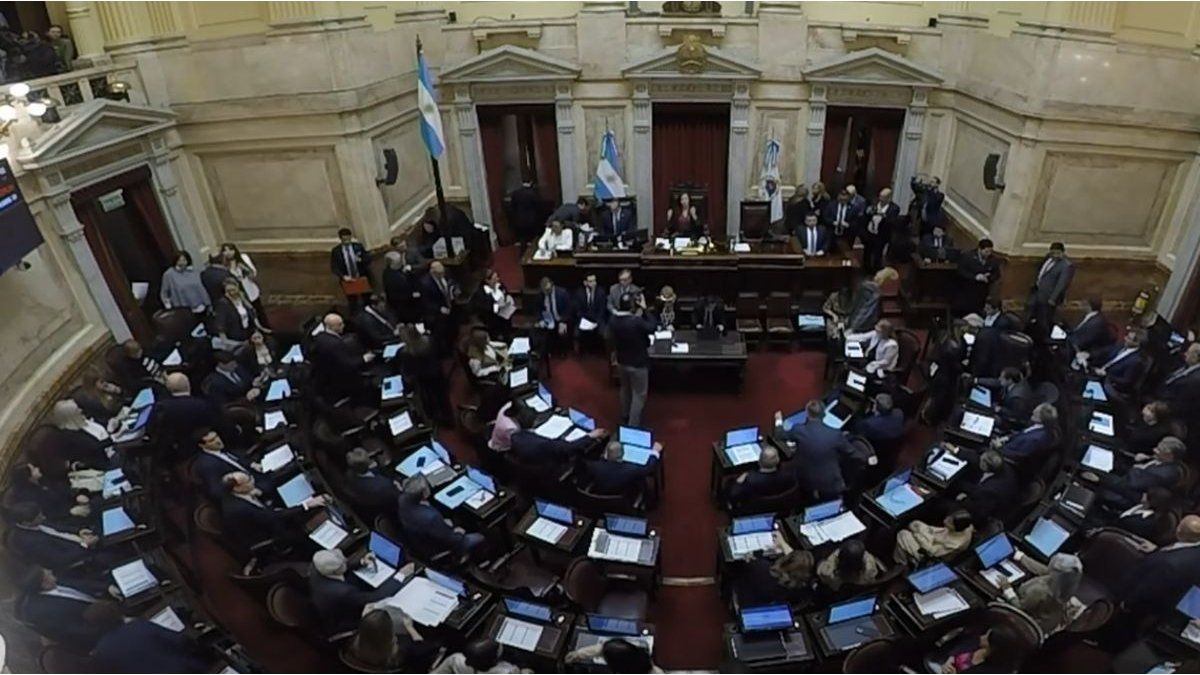The Chamber of Deputies approved, at dawn on Tuesday, the social security reform In general, after 15 hours of intense debate that will resume after noon to vote on each article of the initiative in the midst of intense day of protest and union strike.
The creation and establishment of the convergence procedure of the current regimes of the common pension system obtained 54 of 97 votes. As it was the only item on the agenda, the deputy of the National Party Peter Jisdonian as reporting member in majority, following him in the use of the floor, the representative of the broad front Ana Olivera, who made the presentation of the report in minority. Then there were the speeches of the rest of the legislators.
The social security reform project was voted positively by the deputies of the Coalition and rejected by those of the Broad Front. As of 1:00 p.m., they will resume the discussion for the vote on each article of the initiative. They will do so in the midst of the general national strike called by the PIT-CNT, which also includes a mobilization and the total stoppage of transport throughout Uruguay.
This was the extraordinary session for the social security reform
President Luis Lacalle Pou He was present at the venue after 7:30 p.m. to witness the debate for a few minutes, after his participation in an event for the commemoration of the 108th Anniversary of the Armenian Genocide in the Antechamber of the Chamber of Deputies.
https://twitter.com/DiputadosUY/status/1650577761512087579
During his presentation by the majority, the deputy of the National Party, Pedro Jisdonian, was “very satisfied with the work carried out” by the Special Commission after having arrived at “a bill that will end up being approved today“, and that will give Uruguay “an answer to a current situation that is quite complicated for the future in terms of retirement.”
On the other hand, the former mayor of Montevideo and deputy for the Broad Front, Ana Olivera, made the minority report of the Special Commission and maintained that “they do not share” the project “neither by content nor by form“, having two fundamental criticisms, these being the increase in the retirement age and the lack of an “integral” social character in the reform, since “only addresses retirement and pensions“.
The modifications that the key reform of the government underwent
Of the four points that Town meeting put as a condition to vote the social security reform, there were two fundamental ones that President Lacalle Pou accepted: the drop from 25 to 20 best years worked to calculate retirement – a change that will cost US$ 300 million, that is, 0 3% of the GDP- and the withdrawal of the articles that allowed the AFAP invest abroad.
For his part, he Colorado party obtained a gradual decrease in Social Security Assistance Tax (IASS) and a new retirement age scale according to the number of years contributed (at 63 with 38 contributions and at 64 with between 35 and 37 contributions).
Once the social security reform project is approved, taxpayers must continue to allocate 15% of their salary to social security, but 10% will go to the Social Welfare Bank (BPS) and the remaining 5% to AFAP. Currently, workers who earn more than a certain remuneration and opt for individual savings contribute 7.5% to the BPS and 7.5% to the AFAP, recalled Uy Press.
The previous concessions
Already in March, with the debate frozen in the Special Commission of the Chamber of Deputies, the government of Luis Lacalle Pou had agreed with the legislators of the coalition on various changes to the project voted on in the Senate.
There were modifications in the voluntary and complementary regimens; extension of the widow’s pension (current regime is maintained); the reduction of the required years of marriage (minimum of two years) and concubinage (minimum of five years) to access the pension cause for widowhood; the incorporation of articles on situations of disability; and the suppression of the possibility of early withdrawal of money from the individual savings account, among others, detailed Uy Press.
Source: Ambito




